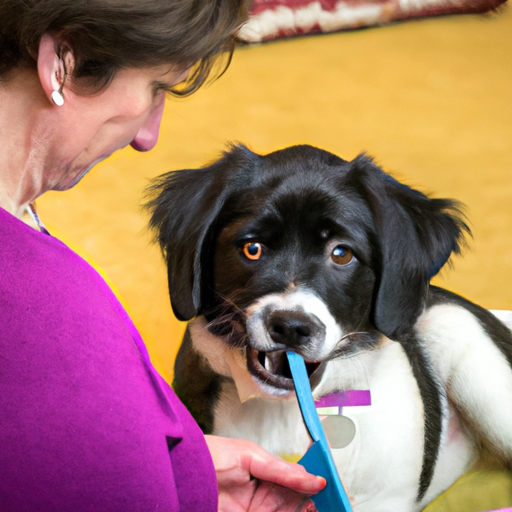As a caregiver, you understand the importance of creating a safe, loving environment for those you take care of, including furry family members.
1. Understanding Why Dogs Bite
Understanding why dogs bite is the first step towards preventing it. Dogs, like humans, have a range of emotions and behaviors triggered by different stimuli. Here are some common reasons:
- Fear: Dogs may bite when they feel threatened or scared.
- Protection: Dogs are protective of their territory, food, or loved ones.
- Pain: Dogs may bite if they are in pain or discomfort.
2. Socializing Your Dog
In the dog world, socialization plays a crucial role. Like a well-versed traveler, dogs who are exposed to different environments, people, and animals are less likely to feel threatened and resort to biting.
- Expose your dog to different environments: Take your dog to parks, dog-friendly cafes, or for car rides.
- Introduce your dog to different people: Invite friends and family to your home to meet your dog.
- Let your dog meet other dogs: Arrange playdates or take them to a dog park.
3. Training Your Dog
Training your dog not to bite involves teaching them bite inhibition, redirection, and using positive reinforcement.
- Bite Inhibition: When dogs play, they learn to control their bite. You can teach this by saying a loud “Ouch” when they bite too hard and immediately stop playing.
- Redirection: If your dog starts to bite, redirect them to a toy or chewable.
- Positive Reinforcement: Reward your dog for good behavior.
4. What If My Dog Keeps Biting?
If your dog continues to bite despite your efforts, it might be time to seek professional help. Here’s how to go about it:
- Consult a Veterinarian: Your dog might be biting due to some underlying health issue.
- Hire a Professional Dog Trainer: They have the necessary skills to deal with problematic behaviors.
5. Prevention is Better Than Cure
Remember, it’s always better to prevent biting behavior than to correct it.
- Don’t encourage rough play.
- Regularly exercise your dog to keep them mentally and physically stimulated.
- Use deterrent sprays if necessary.
Frequently Asked Questions
Q: At what age should I start training my dog not to bite?
A: You can start training puppies as early as 8 weeks old.
Q: My dog is only biting as a puppy, will they grow out of it?
A: While puppies do explore the world through their mouths, it’s important to teach them not to bite humans.
Q: How long will it take to train my dog not to bite?
A: It varies depending on your dog’s personality, but consistency is key.
Q: Can old dogs be trained not to bite?
A: Yes, with patience and consistency, old dogs can learn new tricks.
Remember, every dog is unique and what works for one might not work for another. As caregivers, it’s our responsibility to provide a safe, loving environment where our furry friends can thrive without resorting to unwanted behaviors.



